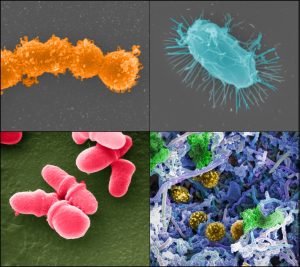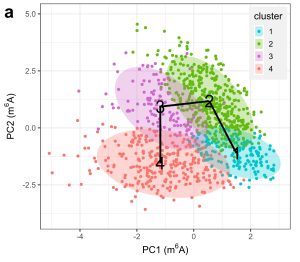16 Dec 2021

Three years ago, Alex Mackrell, a British entrepreneur and former expat, had a full-time job on top of running two companies, but he was not doing well. His dedication to work was great for business, but not for his mental health - he was demotivated and burnt out.
Mackrell, who graduated from Xi’an Jiaotong-Liverpool University’s MSc Management programme in 2018, knew things had to change but not how to make that change sustainable. In early 2019, he discovered the potential of habit psychology, applying this and the “Kaizen” philosophy he studied while at XJTLU. Both went on to transform his life, well beyond just work.
While many know of habits as behaviours we do repeatedly, Mackrell looked into the simple but powerful processes behind habit formation and reinforcement. His goal was to make success inevitable and not reliant on how much motivation he had that day.Kaizen is a Japanese philosophy meaning “change for the better”. It focuses on small, continuous improvements that are easy to implement. The overall goal is to make small changes over a period of time, small changes that lead to huge results.
“Making a life change can be daunting. Kaizen breaks goals into smaller, achievable chunks, and habits make those improvements automatic” he explains.
Over the past two years, he got his life back on track and made big changes by starting small. Here are his tips:

Start small
Mackrell says the changes should not only be small, but “stupidly small”. For example, he wanted to eventually get into the habit of planning his day before getting down to tasks. His first “stupidly small” change? Setting an alarm.
“On day 0, I set an alarm for 9 am the next morning. On day one, I woke up, picked up my notebook, and put it back down. Day two: at 9 am, pick up the notebook and write down tasks for the day. Day three, look at the task list and work on one for just five minutes,” he says.
Changes like this are easier to implement, and Mackrell says despite their relative size, they bring him a great sense of achievement, and encourage him to keep going.
Be consistent
Consistency is key, because improvement over time is the only way to real progress.
As Mackrell improves his routine, the agenda begins to look different:
“Day 30: alarm goes off at 9 am. Pick up the notebook. Get a coffee. Work for 45 minutes. Rest for 10 minutes. Work for 45 minutes. Rest for 10 minutes. Get more coffee, and write down the tasks for tomorrow.”
By day 497, the list has evolved into a powerful routine:
“Alarm goes off at 9 am. Write out today’s date and checklist, and reflect on yesterday. Get coffee. Write down three important work goals and sub-goals for the day. Work for 45 minutes. Rest for 10 minutes. Work for 45 minutes. Rest for 10 minutes. Get more coffee. Work for 45 minutes. Reflect on today’s productivity and potential areas for improvement, and write down the routine for tomorrow.”
This work routine is one of eight he has developed over the past two years, the main aim being to automate the majority of life’s day to day tasks and free up time to do things that are truly meaningful.

Acknowledge your progress
To keep track of his progress, Mackrell uses a notebook to document his routines. He also rewards himself if he has achieved his daily goals.
“Rewards tell your brain that the habit you have just completed is positive and should be repeated. It could be anything that gives you self-satisfaction and a sense of achievement. The stronger the reward, the faster the habit will stick in your mind. And the easier it will be to maintain this habit automatically,” he says.
For Mackrell, the most powerful rewards are the intrinsic feelings of Autonomy (control over your life and work), Mastery (learning and progress), and Purpose (your work is meaningful to you and others). Each of these empowers him to move forward and keep building his business.
Mackrell started his own consulting company in 2019, Manakai Consulting Ltd., with the goal of teaching others to achieve balance in life and work with habits and Kaizen. He no longer works at the cost of his health, is far more motivated, productive, and has much lower stress. He recognises that he is by no means perfect, however, and will continue to improve his habits and his life one tiny step at a time.
Mackrell continues to use Kaizen to improve his routines and his business. “Small changes can lead to huge results over time,” he says. “Everything you need to start is just a pen, paper, and an alarm.”
By Xinmin Han
Edited by Patricia Pieterse
Photo by Alex Mackrell
16 Dec 2021
RELATED NEWS

Becoming a better professional by being a student again
It’s back-to-school time again, and among the ranks of new university students are working professionals. Two new adult learners at Xi’an Jiaotong-Liverpool...
Learn more

Starting Over at 31: An Unconventional Journey to a BSc
An XJTLU alumnus shares his unconventional journey to a BSc in his 30s and landing a job at Daimler, one of the biggest car manufacturers in the world In hi...
Learn more

What it's like to become a student - again
Vionna Fiducia, student intern with University Marketing and Communications at Xi’an Jiaotong-Liverpool University, interviews an XJTLU student 20 years her ...
Learn more








